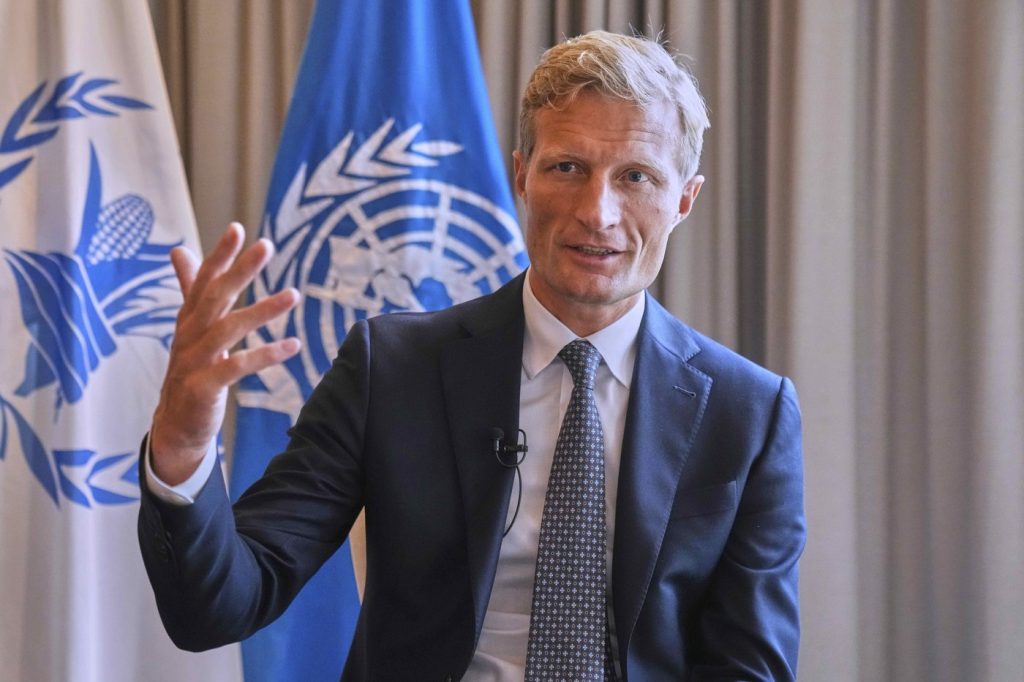BANGKOK (AP) — A United Nations official has announced that a combination of natural disasters, global conflicts, and significant cuts to international aid has led to severe food shortages affecting some of the world’s most vulnerable populations. Carl Skau, deputy executive director and chief operating officer of the World Food Program (WFP), expressed concern about the growing needs and dwindling funding during a recent visit to Bangkok, where he met with Thai officials and highlighted the urgent need for assistance.
Skau noted that in recent years, there has been a dramatic rise in food security needs, with a three-fold increase in demands within the past five years. He emphasized that the situation has worsened due to escalating conflicts, extreme climate events, and a significant funding shortfall, with the WFP experiencing a loss of approximately 40% in funding. This year, skau highlighted, has been particularly challenging.
In the region, recent disasters such as flooding in Pakistan and a catastrophic earthquake and drought in Afghanistan have worsened already dire situations, leaving millions in need of urgent help. Skau pointed out that two years ago, the WFP was able to assist 10 million people in Afghanistan, but that number has plummeted to around 1.5 million due to resource constraints, making it impossible to prepare food supplies in regions that will be inaccessible during the winter months.
He conveyed that malnutrition rates, particularly among young children, have surged in Afghanistan over the last few months. Skau warned that this winter would bring a tragic increase in child mortality due to severe malnutrition, noting the long-term developmental consequences for affected children.
Additionally, ongoing conflicts in Myanmar, Sudan, and Gaza pose significant obstacles to reaching those in need. Both Sudan and Gaza are already facing famine conditions, and a recent 7.7 magnitude earthquake in Myanmar has exacerbated humanitarian challenges there. The civil war in Myanmar has driven many Rohingya refugees to Cox’s Bazar in Bangladesh, where their prospects for a safe return home are bleak.
Skau described the situation in Cox's Bazar as a "prison-like" camp for 1.3 million people who rely entirely on international assistance. Presently, the WFP provides these refugees with monthly food vouchers worth $12; however, as funding diminishes by the end of November, the agency may be forced to reduce its support, either in terms of financial assistance or the number of recipients.
When the WFP previously reduced monthly assistance to $8 in 2023, it resulted in rising tensions and violence within the camp, leading to increased criminal activity and desperate attempts by some individuals to escape to other countries such as Indonesia or Malaysia. Skau highlighted the broader implications, noting that regional stability is at risk, which could have consequences extending beyond the immediate area.
In conclusion, Skau's insights underscore the urgent need for more robust international support to combat the worsening food security crisis exacerbated by global conflicts and declining aid. The WFP is actively seeking new funding sources to address the growing needs of those reliant on humanitarian assistance.











